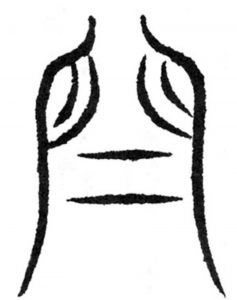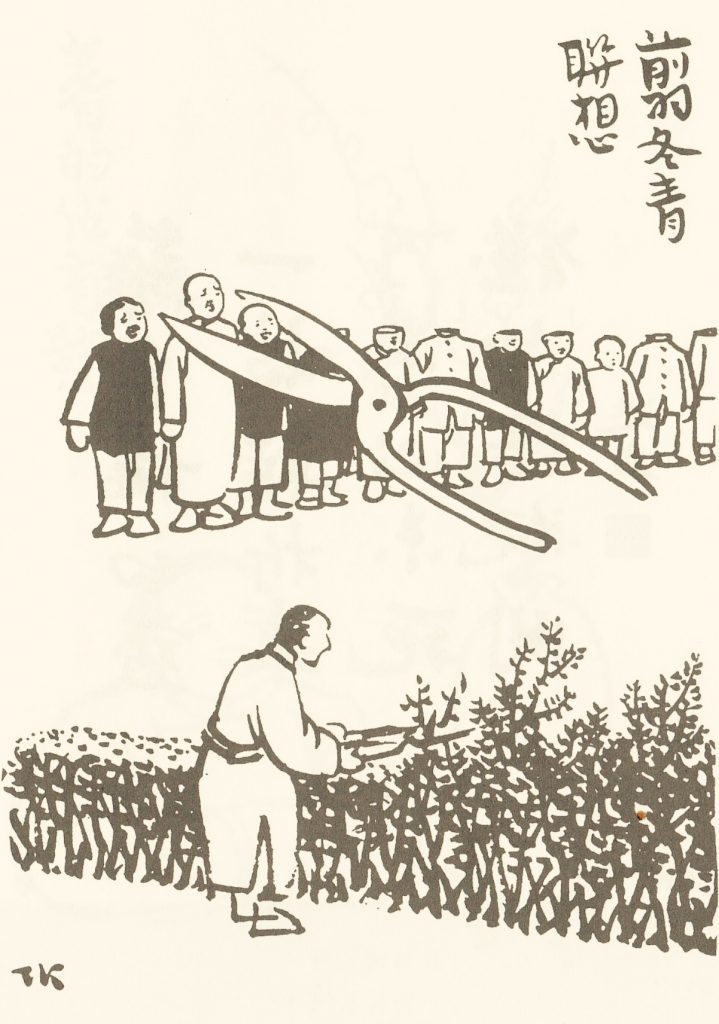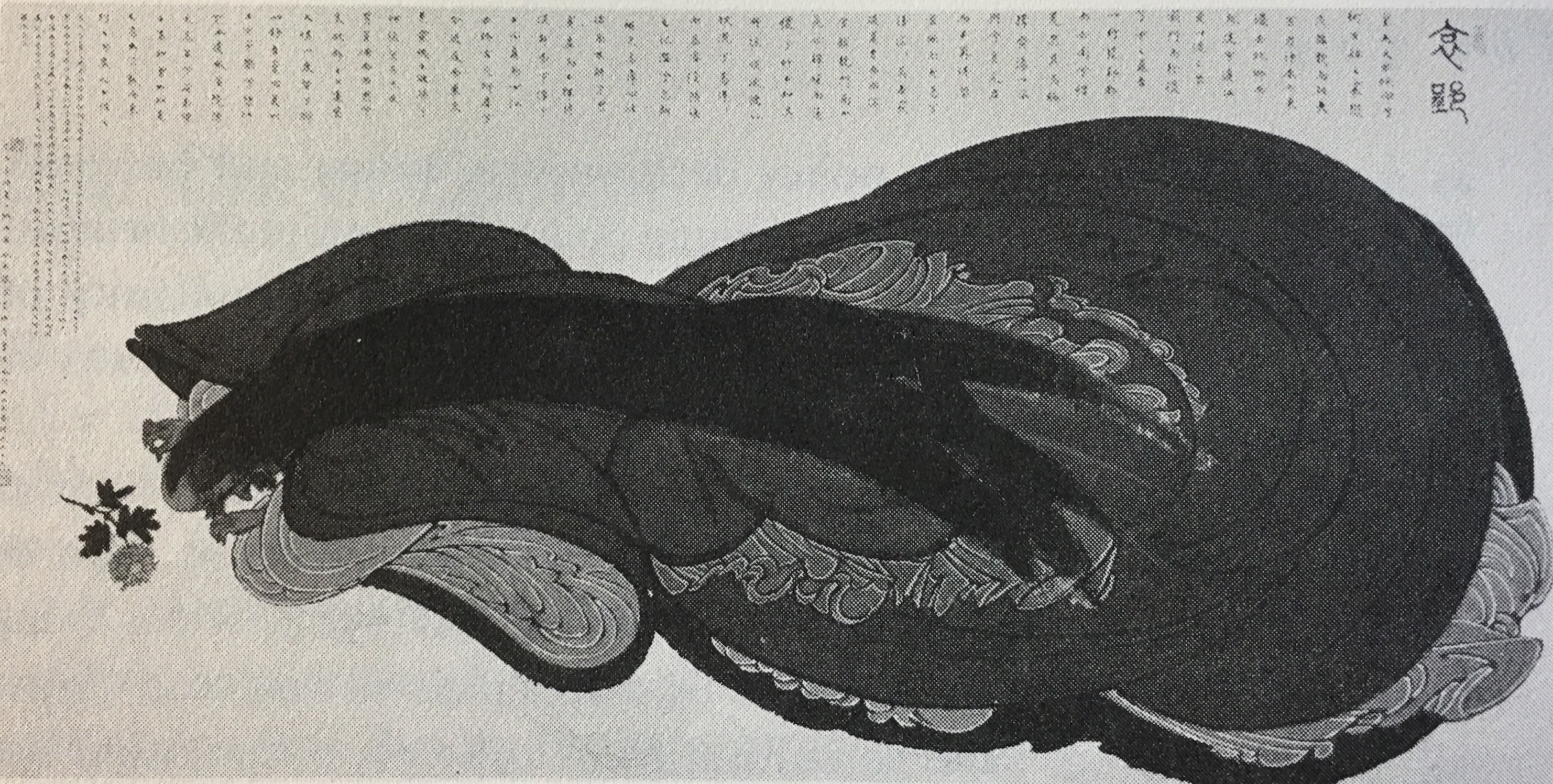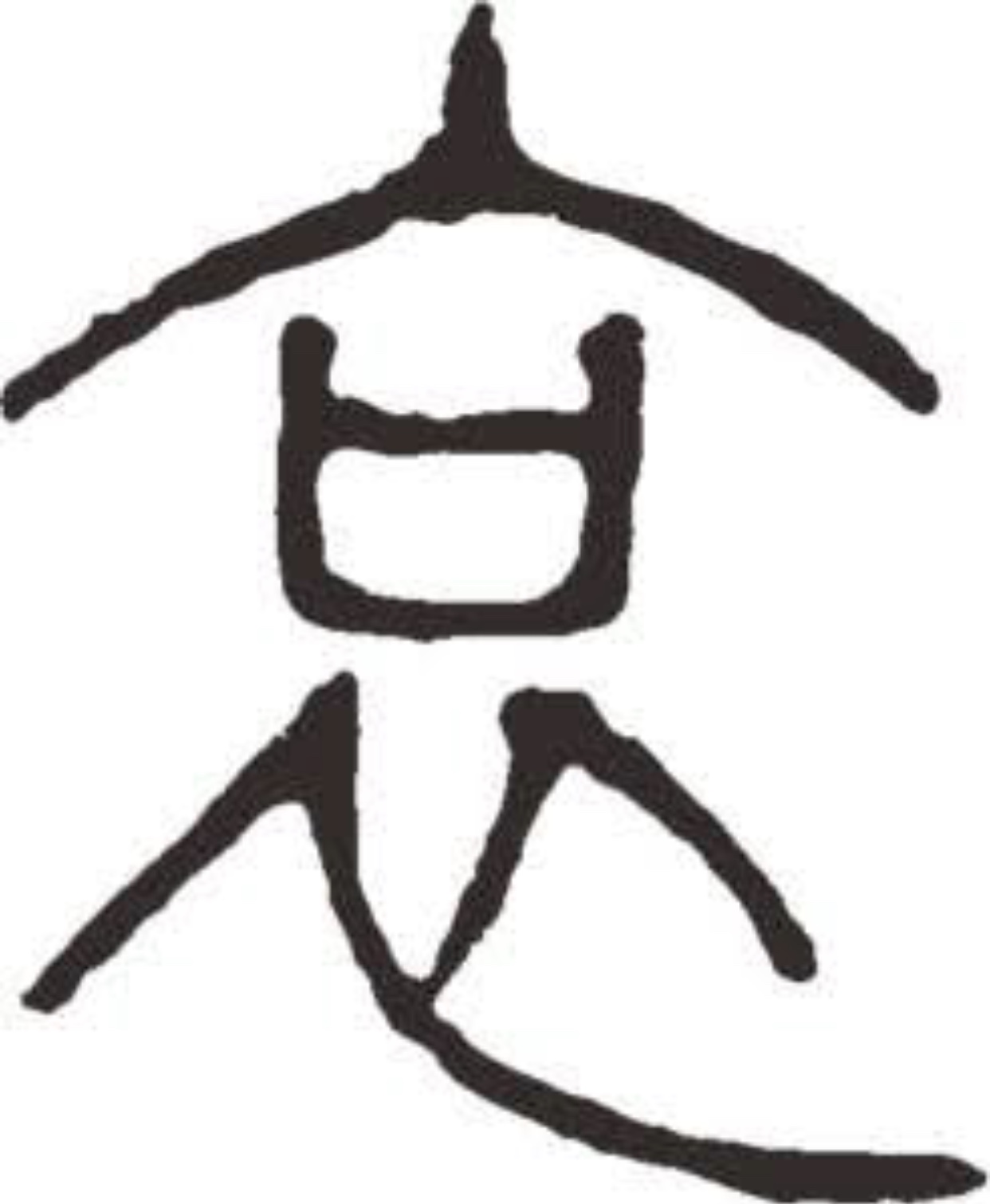As the legend goes, the reign of Sui Yang-ti [r. 604-618 CE] was a great heroic age. The heroes were destined to fight either on the side of or against the great emperor to come, T’ang T’ai-tsung. Before the fall of Sui, however, Sui Yang-ti summoned all the rebels to Yangchow for a tournament. The champion was to win the title of the Supreme Rebel, to whom would be accorded the honors due a king. The plot was to let the rebels kill each other with their own hands, and the survivors would then be killed by mines set off soon after the contest was over. If there were still some survivors left, a gate which weighed one thousand chin would be lowered into the city wall to block their retreat so that a massacre might be carried out by the imperial troops.

But since Sui Yang-ti was to lose the Mandate of Heaven, his plot did not work. An insufficient number of rebels were killed in the arena, and the mines did not explode as planned, thanks to the happy intervention of an ancient fox who had to save the life of the true dragon, T’ang T’ai-tsung, among all the rebels. When the gate was lowered, it was caught by a Herculean bandit who supported it long enough to let the eighteen princes and the lesser rebels from all over China escape to safety. But the gate proved too great a burden even for such a giant, and he was crushed to death.
The heroic episode of the bandit who supported the lowering gate had a special significance for Lu Hsün, who had loved this sort of legend as a child, long before he took a scholarly interest in the history of Chinese fiction. When he wrote the following passages in an essay in 1919, five months after the Fourth of May, I strongly suggest that he had this legend in mind:
Let the awakened man burden himself with the weight of tradition and shoulder up the the gate of darkness. Let him give unimpeded passage to the children so that they may rush to the bright, wide-open spaces and lead happy lives henceforward as rational human beings. 只能先從覺醒的人開手,各自解放了自己的孩子。自己背著因襲的重擔,肩住了黑暗的閘門,放他們到寬闊光明的地方去;此後幸福的度日,合理的做人。
— From Tsi-an Hsia, The Gate of Darkness, 1968,
quoting Lu Xun’s October 1919 essay
‘What is Required of Us as Fathers Today’
我們現在怎樣做父親.
***
In the early 1990s, I worked on a documentary film about the events in and around Tiananmen Square in Beijing during the fateful spring and early summer of 1989. Lu Xun’s ‘What is Required of Us as Fathers Today’ came to mind, as did the posthumous work of T.A. Hsia 夏濟安, both quoted above. At one stage, I even suggested to my colleagues at the Long Bow Group in Boston that we consider calling our film, for which I was the lead academic consultant and writer, The Gate of Darkness. In the end, however, wiser heads prevailed, and a more neutral name, The Gate of Heavenly Peace 天安門, was settled upon. Even such an anodyne title did not, however, spare the film hysterical controversy: upon its release in 1995 it was immediately denounced by the Chinese authorities and for years thereafter it was excoriated by exiled dissidents. Sympathisers of the party-state and its crude and shrill opponents still decry the film (and website), one that rejects crude black and white interpretations of those heart-rending events.
The Gate of Heavenly Peace remains contentious. After years of slander, and impotent litigation, Gate remains yet a powerful record, and interpretive vehicle, of the events of 1989. It follows the fate of a mass protest movement during which rhetorical violence on either side sees moderate voices silenced and compromise frustrated, allowing the Chinese authorities an excuse to crush the protests and wipe out a nascent independent media, an early environmental lobby, workers’ unions, student activists and a generation of sober thinkers (see 1989, 1999, 2009: Totalitarian Nostalgia). The Gate of Darkness descended and murder was unleashed in the streets of Beijing on the night of the 3rd of June and thereafter, as well as throughout the country. The executioner’s shadow still lies heavy over contemporary China.
The events of 1989 are a watershed in Chinese history. They mark in dramatic fashion the global bifurcation of the understanding of China’s trajectory as a modern nation. Elsewhere, I have called those events the first in a series of ‘disconnects’ that have completely untethered the People’s Republic from a consensual view of that country’s evolution and maturation. Even with the passage of time, and despite the sophistry applied by hacks to excusing mass murder in the streets of the Chinese capital, the Fourth of June, the Tiananmen Square Incident, or as I have always called it, the Beijing Massacre, shames China as well as the fellow travellers of the Chinese Communist Party. No matter how the barbarism is justified, it beclouds that country’s collective conscience.
China Heritage marks this mournful day with an excerpt from the film Morning Sun 八九點鐘的太陽 (this video is slow to load), the 2003 ‘prequel’ to The Gate of Heavenly Peace; an excerpt from the conclusion of Gate featuring Ding Zilin (also slow to load); a poem by the Hong Kong writer Xi Xi (for her other work in China Heritage, see here); a YouTube video of the Communist Young Pioneers song interpreted by a popular mainland boy band; a painting by Feng Zikai followed by Huang Yongyu’s ‘A Lament for Ying’. We conclude with an Editorial Note about the four interconnected commemorative essays published in China Heritage over the last week:
- Memory Holes, old & new
- The Double Fifth and the Archpoet
- Child’s Play — 1st of June
- The Gate of Darkness
***
My thanks to Nora Chang for providing me with material from the Long Bow Archives.
— Geremie R. Barmé, Editor, China Heritage
4 June 2017
Blossoms of the Motherland 祖國的花朵
In this excerpt from the ‘chapter’ Unlearning 自我否定 in Morning Sun, we introduce the 1955 film Blossoms of the Motherland. A nostalgic classic for mainlanders of a certain generation, the film is famous for its representation of an idealised vision of childhood under socialism, as well as for the revolutionary romanticism of ‘Let’s Paddle’ 讓我們蕩起雙槳, a paean to the Young Pioneers of Communism.
After this film was released, progressive children (that is, those from acceptable class backgrounds) in China were dubbed ‘Blossoms of the Motherland’: politically malleable beings to be propagated and nurtured until they came into full, heliotropic flower. By the time of the Cultural Revolution, which is the subject of Morning Sun, they were in thrall to the Reddest, Reddest Red Sun, Mao Zedong:
(The bereaved Ding Zilin 丁子霖, founder of Tiananmen Mothers, offers her view of Blossoms of the Motherland below.)
In the First Light of Dawn
Xi Xi
In the first grey light of dawn,
We curl into the air,
Trailing from the ground
Up into the open sky above the square.
Limp, leaden, dumdum-pocked
The corpses lie
Mashed into the concrete.
Suddenly weightless
We drift
Like balloons.
We hear the sound
Of your weeping.
Mother, I beg you
Not to look for us again in the square,
The wasteland, where
Crushed tents, banners, command posts,
Public address stations
Strew the ground.
Teachers, students, friends
Are all gone.
The acrid smoke of gunfire
Fades as
Thousands of lives
Turn to ash.
Tomorrow will be Environment Day —
A Sanitation Show is planned,
The square will be scrubbed
Nice and clean,
As if nothing ever happened.
We hear the sound
Of your weeping.
We fell together,
Together we rise,
Joining once more our parted hands,
Holding our torches even higher.
A wound gapes
On one man’s chest;
A tank tread
Furrows one man’s brow.
But these wounds lie
On the body’s husk;
We are beautiful beyond compare.
Nothing can hurt us now.
We will share
The city’s splendour
With the stone beasts —
They, on their columns,
We, on the People’s Monument —
Calling
Across the square.
11 June 1989
— trans. Pang Bingjun 龐秉鈞, with John Minford, in
Geremie Barmé and Linda Jaivin, eds,
New Ghosts, Old Dreams:
Chinese Rebel Voices,
1992, pp.106-107.
The Gate of Darkness 黑暗的閘門
This excerpt from The Gate of Heavenly Peace offers an account of what happened after the Gate of Darkness came crashing down. Slain protesters are ignored and go unmourned, while the killers are extolled as revolution martyrs. Children mass in Tiananmen Square — freshly sanitised for what Xi Xi notes was Environment Day 世界環境日 on 5 June — where they chime Party hosannas and salute the fictition of Communism:
This chilling ceremony adumbrates an age of untruth, double-think and memory holes. In the 1950s there was a popular, official sanctioned, saying: ‘The Soviet Union of Today is Our Tomorrow’ 蘇聯的今天就是我們的明天.
Following the calamity of 1989, the bien pensant inside and outside China chose to ignore, or deride, the Party’s revived ideology, the fact it took heed of the lessons of Eastern Bloc and the collapse of the Soviet Union, and that it remained dogged in its stance on ‘peaceful evolution’ 和平演變. As a result they misjudged China’s posture and the resilience of a Party that has spent decades and untold wealth to meld late-dynastic statist Confucianism with its Marxist-Leninist credo. With the global lurch towards extremism and darkness in recent times, people could perhaps be forgiven for thinking that China’s Today might be Everyone’s Tomorrow. Fortunately for us all, the inescapable reality is that there is always a day after tomorrow.
***
Communist Heirs 接班人
The song ‘We Are the Heirs of Communism’ 我們是共產主義接班人 was released in 1962, just as the struggle over the future of the Party and Mao’s vision for China and world revolution intensified. It soon became China’s Horst-Wessel Lied for children:
We are Communist Successors,
Heirs to the glorious revolutionary tradition.
We love the Motherland, Love the People
Our bright red bandanas fluttering on our chests.
Fearing no difficulty, undaunted by the enemy,
We study hard and struggle relentlessly
Heroically advancing forever towards victory.
To victory, Advance!
We are Communist Successors.
我們是共產主義接班人,
繼承革命先輩的光榮傳統,
愛祖國,愛人民,
鮮艷的紅領巾飄揚在前胸。
不怕困難,不怕敵人,
頑強學習,堅決鬥爭,
向著勝利勇敢前進,
向著勝利勇敢前進,前進!
向著勝利勇敢前進,
我們是共產主義接班人。
The popular TFBoys (aka, ‘The Fighting Boys’ 加油男孩) rendition of ‘We Are the Heirs of Communism’ released for the 1st of June Children’s Day in 2016 adds a new, cloying dimension to the grotesquerie:
Apart from the milksop 奶油小生 boy band this MTV features cameo appearances by various star athletes and scientists. In light of today’s 4 June commemoration, it starts with a particularly ugly moment when a gaggle of youngsters visits the elderly Chi Haotian 遲浩田 who then lectures them as he fingers his own Young Pioneers red scarf. A former Politburo member and deputy chair of the People’s Liberation Army Central Military Commission, Chi helped design the marital law plan imposed on Beijing in May 1989; he also oversaw the logistics of the Beijing Massacre itself.
***

A Lament for Ying 哀郢
After the Fourth of June 1989, the celebrated artist Huang Yongyu 黃永玉, no stranger to political repression or controversy himself, painted Qu Yuan 屈原, China’s archpoet, prostrate in bereavement. Huang inscribed the text of ‘A Lament for Ying’, from Jiu zhang 九章 in The Songs of the South 楚辭, on the painting. It was published in the Hong Kong journal The Nineties Monthly 九十年代月刊 and reprinted in New Ghosts, Old Dreams.

High Heaven is not constant in its dispensations:
See how the country is moved to unrest and error!
The people are scattered and men cut off from their fellows.
In the middle of spring the move to the east began.
I left my old home and set off for distant places,
And following the waters of the Jiang and Xia, I travelled into exile.
…
My mind was drawn with yearning and my heart was grieved.
So far! I knew not whither my way was leading,
But followed the wind and waves, drifting on aimlessly,
A traveller on an endless journey, with no hope of return.
…
When your favour was courted with outward show of charm,
You were too weak; you had no will of your own.
But when, with deep loyalty, I tried to go in before you,
Jealousy cut me off and blocked my way to you.
…
You hate the deep and studious search for beauty,
But love a base knave’s braggart blusterings;
And so the crowd press forward and each day advance in your favours;
And true beauty is forced far off, and retires to distant places.
皇天之不純命兮,何百姓之震愆。
民離散而相失兮,方仲春而東遷。
去故鄉而就遠兮,遵江夏以流亡。
…
心嬋媛而傷懷兮,眇不知其所蹠。
順風波以從流兮,焉洋洋而爲客。
…
外承歡之汋約兮,諶荏弱而難持。
忠湛湛而願進兮,妒被離而障之。
…
憎慍惀之修美兮,好夫人之慷慨。
衆踥蹀而日進兮,美超遠而逾邁。
— trans. David Hawkes, The Songs of the South, pp.164-165.

Editorial Note:
During this week of recollection we have published four interconnected essays, all relate to the issue of ‘loyalty’ and the inculcation of appropriate behaviour, a feature of Child’s Day on the 1st of June.
The pro-Party journalist cum dissenter Liu Binyan was famous in his last years for a work of reportage called A Second Kind of Loyalty 第二種忠誠. As we noted in the essay on The Double Fifth, which focusses on the poet Qu Yuan, Liu would be criticised by political activists like Liu Xiaobo for his ‘befuddled or misplaced loyalty’愚忠 when dealing with a system that was fundamentally flawed. As we noted in Memory Holes, old & new, it is a system that is expert at dealing with nettlesome creatures like Liu Binyan, Liu Xiaobo and, more recently, Ai Weiwei.
The journalist Dai Qing 戴晴, who was inspired by Liu Binyan’s work to pursue journalism after a frustrated career in intelligence, addressed the issue of loyalty at a meeting of Liu Binyan 劉賓雁 and the Taiwan pro-mainland writer Ch’en Ying-chen 陳映真 in Hong Kong in 1988. She declared that, despite her admiration for Liu’s purity of purpose, ‘whether it is the first, second or third kind of loyalty, no amount of loyalty would save China’.
For his part, Mao Zedong may well have extolled Qu Yuan’s loyalty and courage, but in his own day he was pitiless in crushing those who disagreed with him, one prominent victim being the philosopher and rural activist Liang Shuming 梁漱溟. The Chairman also wryly noted that if the ancient poet Qu Yuan had not been ‘sent down to the countryside’ he would have never produced his immortal works. It is a cruel irony indeed that although so many artists and writers were banished in the Mao era, little work of lasting value has been bequeathed to us.
***
The linked commemorative essays that have appeared in China Heritage this week are:
- Memory Holes, old & new
- The Double Fifth and the Archpoet
- Child’s Play — 1st of June
- The Gate of Darkness

